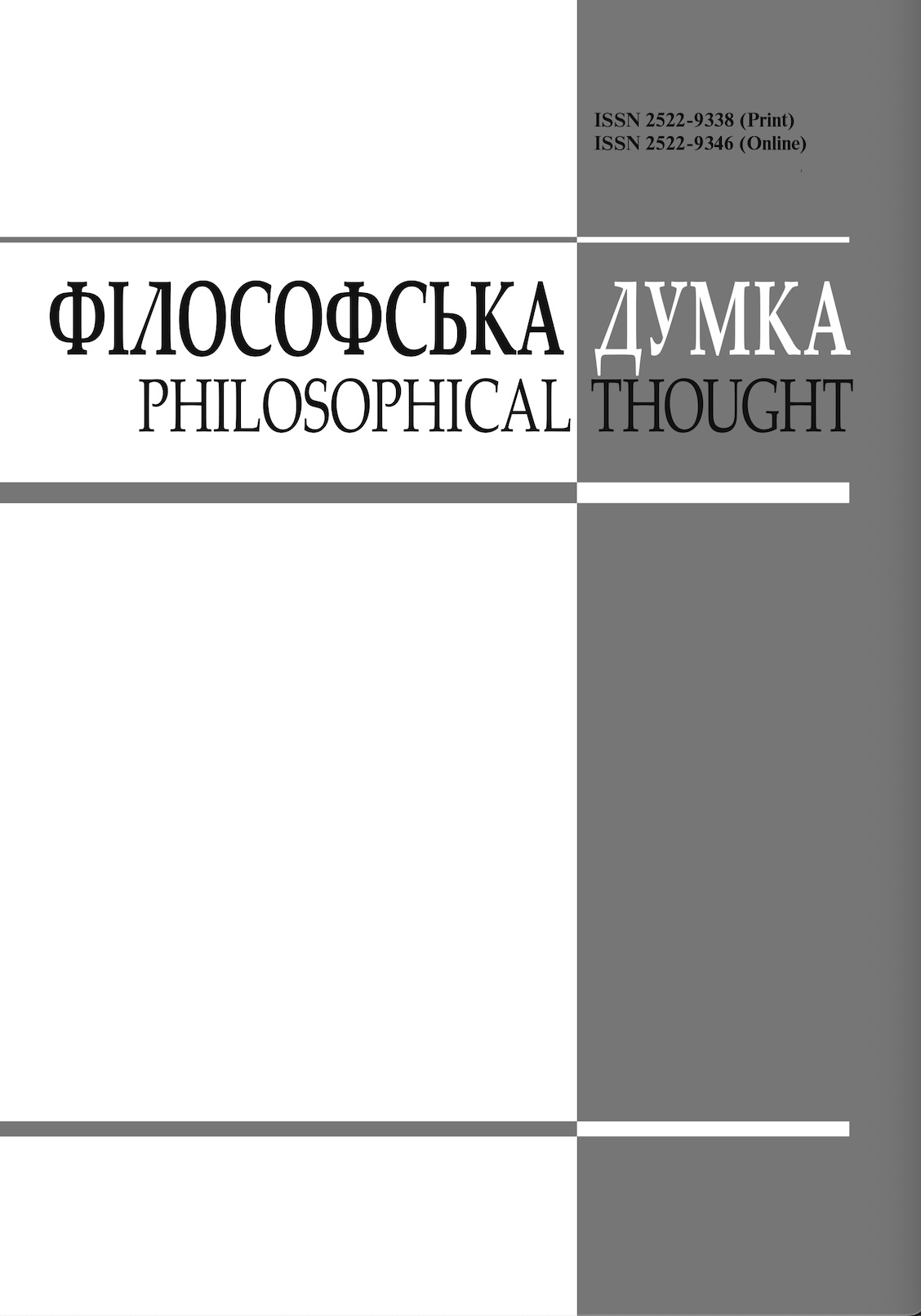WAR AND PEACE AS MORAL IMPERATIVES OF MODERNITY
DOI:
https://doi.org/10.15407/fd2025.01.082Keywords:
war, peace, global world, crisis of normativity, devaluation of values, stateAbstract
The article examines war and peace as dimensions of the existence of the global world. They outline the situation of civilizational choice, which will either enable the productive development of planetary humanity or lead humanity to catastrophe. War is defined as a fatal strategy, which has always had an extraordinary character despite the prevalence of the phenomenon of war. The fatality of war is determined doubly. First, by the fact that in the end all participants in the war lose: there are no winners in war, since participation in war destroys the potential for development. Second, by the fact that war generates human alienation and the destruction of normativity. This effect is revealed through the analysis of two processes of deformation of human existence: depopulation of man and devaluation of values. The basis for the answer to the question "how is modern war possible?" becomes the justification of the global crisis of normativity that is unfolding in global reality. Modern war has already acquired a global character, despite the fact that the theaters of military operations – in Ukraine and the Middle East – are still local. Its specificity is revealed through the challenge to three obvious facts of war, which are inherent in its customary understanding. The first obvious fact is the classical understanding of war as a political instrument (“the continuation of politics by violent means”). In contrast, it is argued that in certain historical periods, war can become an end in itself and become an established way of life for societies; we must be prepared for the fact that global humanity is now entering such a period. The second obvious fact is military actions themselves. However, the real basis of war is the growth of the role of violence in people's lives, which follows from the primacy of interests over values. The origin of war is the destruction and replacement of values by interests. The third obvious fact is the consequences of war. These are not only undoubted destruction and death, but also the depopulation of man. Manic ideocratic regimes, retrograde strategies of globalism, and the state's struggle for its existence are highlighted as triggers of contemporary war.
References
Clausewitz, K. (2018). Die Natur des Krieges. [In Ukrainian]. Kharkiv: Vivat.
Economic Freedom in the World. (2024). Fraser Institute Report. [In Ukrainian]. Retrieved from: https://forbes.ua/news/ukraina-povernulasya-do-grupi-naybilsh-ekonomichno-nevilnikh-krain-zvit-institutu-freyzera-16102024-24204
International Military Tribunal (Nurenberg), Judgment of 1 October 1946. Retrieved from: https://crimeofaggression.info/documents/6/1946_Nuremberg_Judgement.pdf)
Kant, I. (2015). Zum ewigen Frieden. Ein philosophischer Entwurf. Berlin: Edition Holzinger.
Lorenz, K. (1983). Das sogenannte Bose: Zur Naturgeschichte der Aggression. München: Deutscher Taschenbuch Verlag.
Downloads
-
PDF (Українська)
Downloads: 97
Published
How to Cite
Issue
Section
License
Authors who publish with this journal agree to the following terms:
- Authors retain copyright and grant the journal right of first publication.
- Authors are able to enter into separate, additional contractual arrangements for the non-exclusive distribution of the journal's published version of the work (e.g., post it to an institutional repository or publish it in a book), with an acknowledgement of its initial publication in this journal.
- Authors are permitted and encouraged to post their work online (e.g., in institutional repositories or on their website) prior to and during the submission process, as it can lead to productive exchanges, as well as earlier and greater citation of published work (See The Effect of Open Access).


